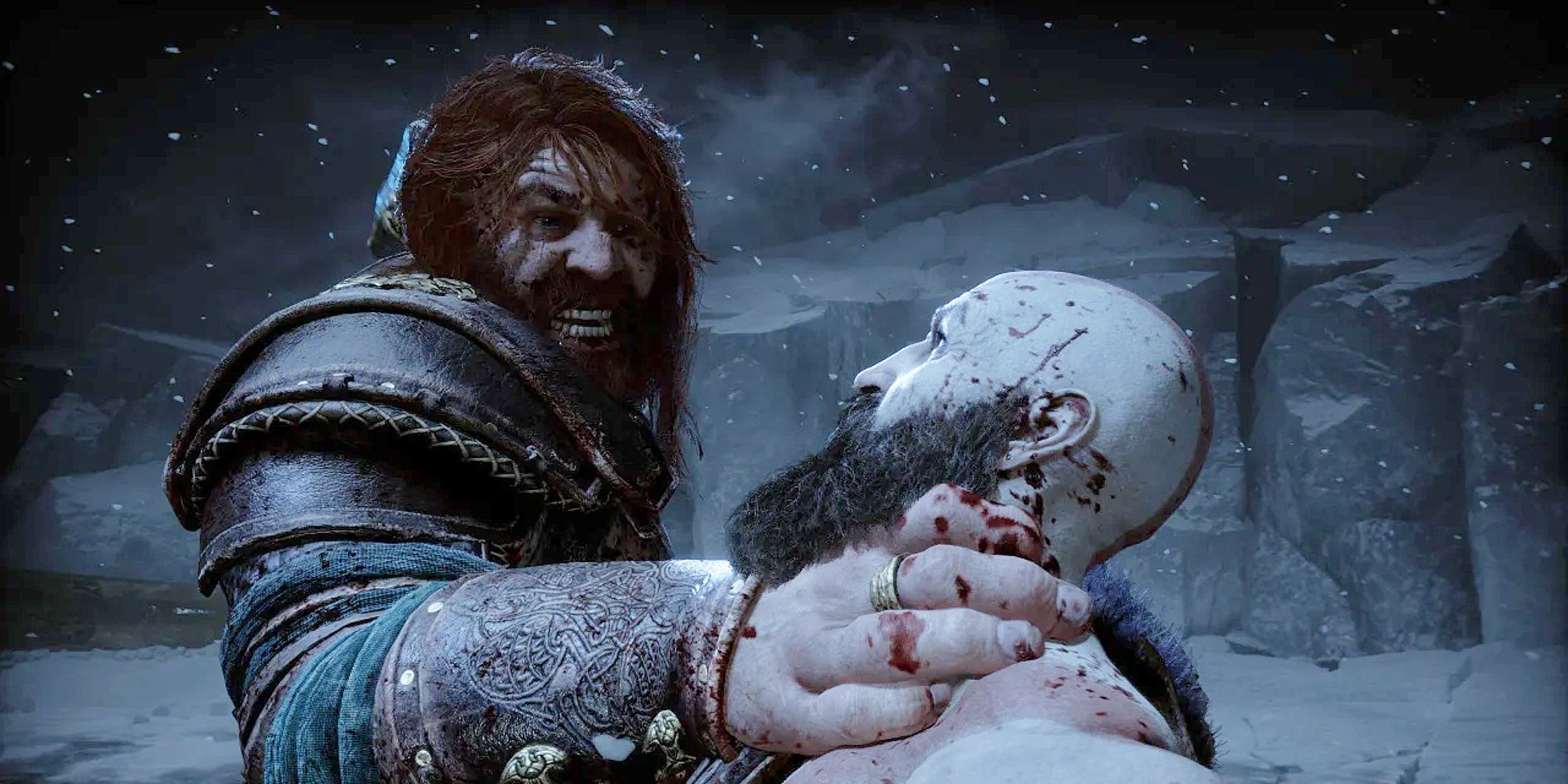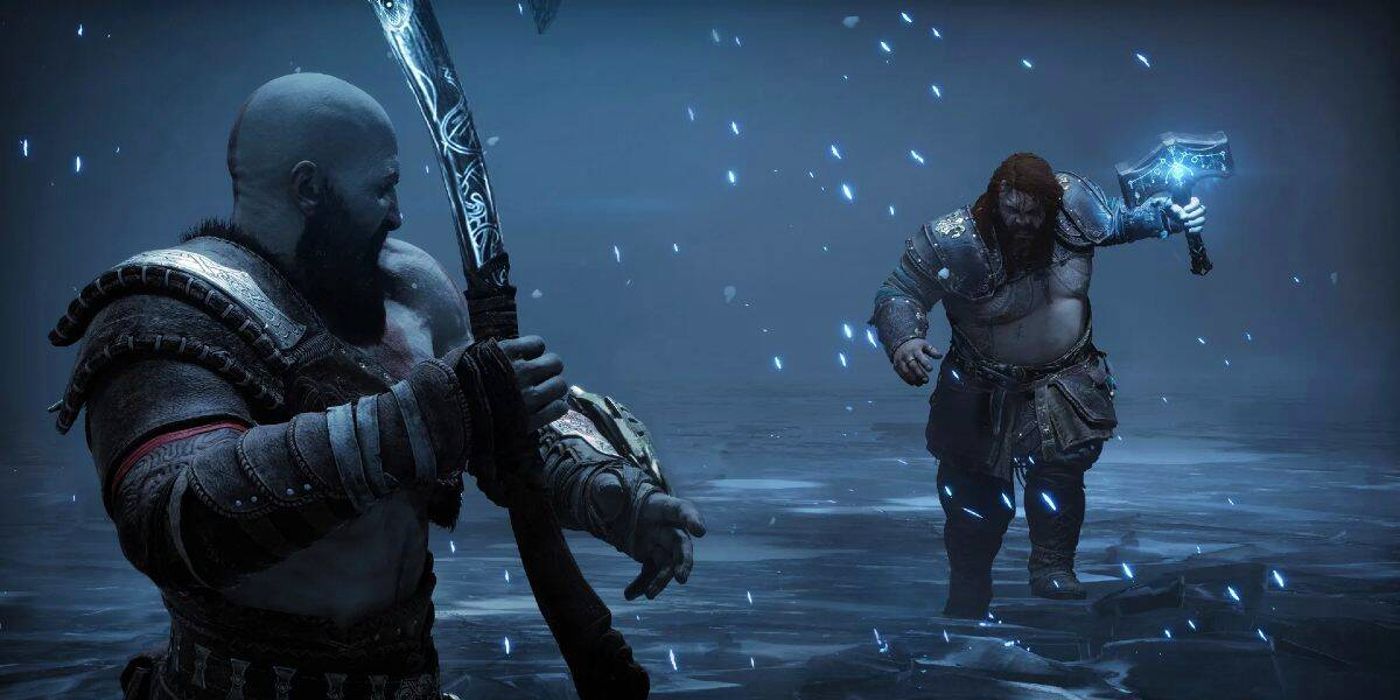Thor’s story in God of War Ragnarok is quite a tragic tale. The game depicts a version of the god of thunder that starkly contrasts with the more upbeat characterizations across the Marvel properties. In this story, Thor deals with the nearly unbearable weight of living in his father’s shadow, which leads him to dark places. Despite his godly powers, God of War Ragnarok’s Thor is very human, and his sorrowful character arc makes it easier to empathize with the deity.
[Warning: This article contains story spoilers for God of War Ragnarok.]
God of War Ragnarok finally gives players a look at the god of thunder. For his entire life, he has lived in the shadow of his father, Odin, the most scheming villain in video games. In stark contrast to Kratos' and Atreus’ caring relationship, Thor is merely a tool for Odin to use for his nefarious plans. One of the worst atrocities Thor committed on Odin’s behalf was the slaughter of all the giants in Midgard, which took place before God of War. At the beginning of God of War Ragnarok, Thor shows up at Kratos' and Atreus’ home, and they assume he’s there to get revenge for the death of his two sons, Magni and Modi, and brother, Baldur. This is where his role as Odin’s servant is revealed, as he only attacks Kratos when Odin permits him.
GoW Ragnarök: Thor’s Rocky Relationship With Thrúd and Sif
Later on, when Atreus visits Asgard, he learns more about Thor’s personal struggles as Odin’s son and how it affects his family life. In Atreus’s playable sections of Ragnarok, Thor comes along on his assignments from Odin to find other pieces of his mysterious mask. Atreus tries to get through to Thor in their brief time together and learns that Thor has been conditioned not to think, to do Odin’s bidding without question, no matter the personal cost.
So far, Odin’s plans have resulted in Thor’s sons' death and placed great strain on Thor’s relationship with his wife, Sif. Sif knows Odin doesn’t honestly care about Thor and his family and tries to get Thor to do something about it. She suggests they leave and find a way to live independently.
He feels that he cannot escape Odin’s grasp, so he turns to heavy drinking to cope, which is quite different from his MCU counterpart. Thor’s bad habits end up being more destructive to his family. Atreus and Thrud, Thor’s daughter, find the god of thunder has been drinking again after a period of sobriety, and, after a tense bar fight scene, Thrud scolds her father for failing to stay away from mead and reassures him that she and Sif are there for him. However, Thor is not confident that he can change, so he repeatedly falls into the same destructive cycle.
Thor even tells Kratos that he believes change isn’t possible for them because they have committed crimes so heinous that there is no return from them. Kratos, who shockingly doesn’t die in Ragnarok, is able to change his mind by refusing to kill him and saying that, for the sake of their children, they must be better people. Thor loves his daughter Thrud, and it hurts him and Sif to keep her away from her dream of becoming a valkyrie. However, they really only want to prevent her from becoming a valkyrie that serves Odin. Kratos’ words give Thor the courage to stand up to Odin, but the attempt is cut down. Enraged by Thor’s defiance, Odin kills the god of thunder as Thrud watches her father fade into dust.
Thor’s conclusion in God of War Ragnarok’s ending is heartbreaking. He serves as a cautionary tale to Atreus, as a son of a famous god who cracks under the pressure of living up to his father. Thor also acts as a dark mirror for Kratos, as a father who waited too long to change for their child. The happy result of Thor’s story is that Sif and Thrud were able to survive the destruction of Asgard and carry on a new legacy for the family. After the game ends, Thrud can be found wielding Mjolnir and training to become a valkyrie, which shows that Thor’s change of heart in God of War Ragnarok’s ending wasn’t in vain.


